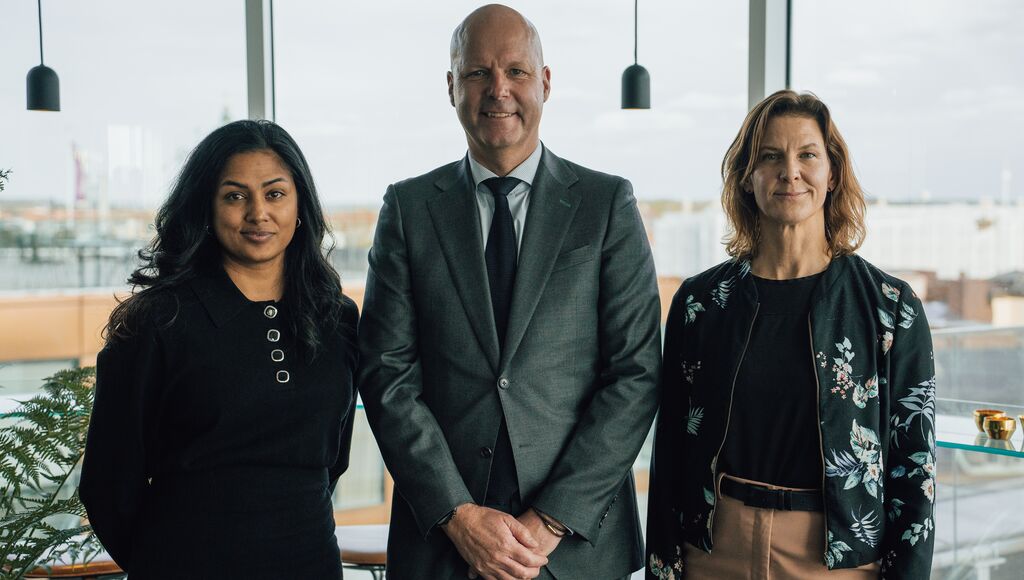
Minister Nina Larsson on the future of equality and worklife
Insights|May 5, 2025
Equality is not a finished project. As global resistance to diversity, equity, and inclusion (DEI) grows, the need for strong, values-based leadership has never been greater. This was the topic of a recent talk at the office, where we heard thoughtful points about the importance of DEI in shaping resilient and inclusive workplaces.
Sweden’s newly appointed Minister for Gender Equality and Working Life, Nina Larsson, is calling for stronger leadership and long-term commitment in the face of growing global backlash against diversity, equity, and inclusion. With experience from both the military and the tech sector, Nina brings a practical and strategic perspective to advancing equality across society and business.
Having recently stepped into her role as Minister for Gender Equality and Working Life, Nina has expressed her concern about the international trend of resistance to DEI initiatives. While attention often focuses on the United States, similar pushbacks are surfacing in several other countries, including within Europe. Nina warns against assuming past progress is enough. “We may have leaned back, thinking the matter was settled, but that’s not the case. We must continuously raise awareness and actively work on these issues,” she said.
Having served as CEO of Knowit Dataunit, a defense-focused IT consultancy, and with a background as a professional officer, Nina underscores the value of a holistic approach to equality. She sees gender equality as deeply connected to human rights, democracy, and competitiveness. In her ministerial role, she plans to work across portfolios, involving other government sectors to address these challenges collaboratively.
Long-term values in a short-term world
Nina believes that leadership is key to making progress on DEI. She stresses that knowledge and time alone aren’t enough – real change requires deliberate choices and active engagement. From a policymaker’s perspective, understanding the pace at which businesses operate is essential. “They are accustomed to rapid decision-making and swift implementation,” she said, adding that her corporate background gives her insight into how quickly the private sector can respond to clear directives.
She also pointed to the importance of holding onto core values, even when under pressure to prioritize short-term results. For companies, this means committing to equality as a long-term goal and embedding it into everyday operations and leadership culture.
Why DEI is a business imperative
One of Nina’s strongest arguments for companies to stay focused on DEI is the issue of talent. “If companies want to succeed, they need to leverage all available competencies,” she said. This demands leadership that actively supports diversity and gender equality. In her view, enabling individuals to reach their full potential benefits not only the organization but also the broader economy and society.
She emphasized that the responsibility now lies with management teams to stay the course, counter resistance, and lead meaningful conversations around equality and inclusion.
“Act, don’t lean back”
In recent discussions with leaders in the equality space, Nina has highlighted topics such as the international ripple effects of U.S. DEI policy, the importance of anchoring company values in long-term strategy, and how diversity is critical to attracting top talent.
The overarching message is clear: while awareness and good intentions matter, progress comes only through action. Equality is not a box to check but a continuous leadership responsibility.
For more perspectives like this, visit our newsroom and follow our channels for the latest from House of Many Voices.
Read more:
Why corporates should create space for dialogue: Roschier’s stage at Almedalen